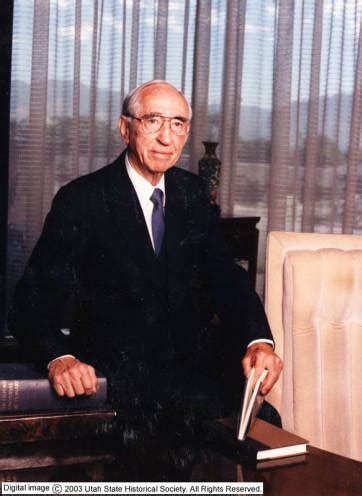A Quote by Obert C. Tanner
Agape means love for another self not because of any lovable qualities which he or she may possess, but purely and entirely because it is a self capable of experiencing happiness and misery and endowed with the power to choose between good and evil. The love of humans is thus more than a feeling, it is a state of the will.
Related Quotes
There may come a time when it will be possible for you to humiliate your worst enemy or even to defeat him, but in order to love the enemy you must not do it... The Greek language has another word [for love]. It calls it agape. Agape is more than romantic love. Agape is more than friendship. Agape is understanding, redemptive goodwill for all men. Agape is an overflowing love, a spontaneous love, which seeks nothing in return. And theologians would say that it is the love of God operating in the human heart. When you rise to love on this level you love all men, not because you like them, not because their ways appeal to you, not because they are worthful to you, but you love all men because God loves them. And you rise to the noble heights of loving the person who does the evil deed while hating the deed that the person does. And I think this is what Jesus means when he says, “Love your enemies.”
The third doorway is the Doorway of Unconditional Self-love, which corresponds to the energy center located in the solar plexus area. As I said earlier, the key to feeling love and living in love is having self-love. I mean real unconditional self-love, not "I love myself because I'm a good wife" or "I love myself because I do a good job at work" or "I love myself because I look a particular way." It's because I love myself no matter what. That's where our real power lies, in the ability to love ourselves unconditionally.
Self-esteem is made up primarily of two things: feeling lovable and feeling capable. Lovable means I feel people want to be with me. They invite me to parties; they affirm I have the qualities necessary to be included. Feeling capable is knowing that I can produce a result. It's knowing I can handle anything that life hands me.
We now possess four principles of morality: 1) a philosophical: do good for its own sake, out of respect for the law; 2) a religious: do good because it is God's will, out of love of God; 3) a human: do good because it will promote your happiness, out of self-love; 4) a political: do good because it will promote the welfare of the society of which you are a part, out of love of society having regard to yourself. But is this not all one single principle, only viewed from different sides?
In order to be truly free, you must desire to know the truth more than you want to feel good. Because, if feeling good is your goal, then as soon as you feel better you will lose interest in what is true. This does not mean that feeling good or experiencing love and bliss is a bad thing. Given the choice, anyone would choose to feel bliss rather than sorrow. It simply means that if this desire to feel good is stronger than the yearning to see, know, and experience Truth, then this desire will always be distorting the perception of what is Real, while corrupting one's deepest integrity.
If the denial of death is self-hatred, as it is to deny our freedom and live in fear of death (which is to say, to live in a form of bondage), then the acceptance and affirmation of death is indeed a form of self-love. But I'd want to make a distinction between a form of self-love which is essential to what it means to be human, and a narcissism of self-regard, like Rousseau's distinction between amour de soi and amour propre, self-love and pride.
If "man who supports his family, at all costs, even his own happiness" is Who You Are, then love your work, because it is facilitating your creation of a living statement of Self. If "woman who works at job she hates in order to meet responsibilities as she sees them" is Who You Are, then love, love, love your job, for it totally supports your Self image, your Self concept. Everyone can love everything the moment they understand what they are doing, and why. No one does anything he doesn't want to do.
The meaning of self-esteem is to feel lovable and capable. As parents, we must love our children unconditionally and give them a sense of being nurtured. That's the lovable part. Then, we must provide structure - rules, boundaries, daily or weekly household tasks that give them a sense they are making a contribution. That's what helps kids grow up feeling capable.
When we love another, we never ever seek to limit or restrict them in any way whatsoever. Love says, "My will for you is your will for you." Love says, "I choose for you what you choose for you." When I say, "I choose for you what I choose for you," then I'm not loving you. I'm loving me through you, because I'm getting what I want, rather than seeing you get what you want.





























